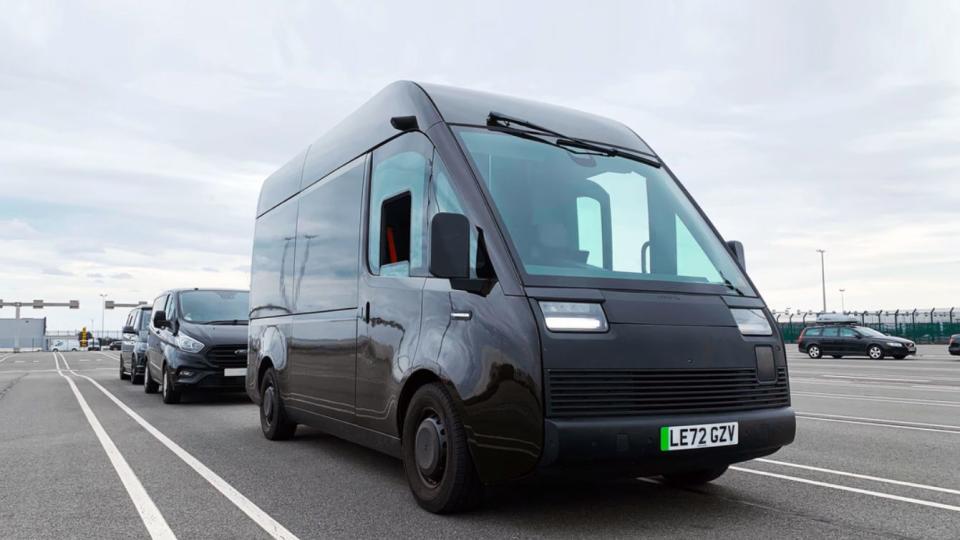Yet Another EV Startup Is Hitting a Rough Patch

Two UK subsidiaries of EV startup Arrival, known for its last-mile delivery van plans and "microfactory" approach to manufacturing, have entered administration in the UK and are planning to sell off assets.
The startup moved almost all of its operations to the US in late 2022, after canceling plans for a number of vehicles that had been in development.
At the end of January 2024, Arrival received a delisting notice from NASDAQ, and is now in a precarious position.
Not that long ago EV startup Arrival suddenly shifted its business to the US, heading for greener pastures promised by the Inflation Reduction Act.
But the remains of its UK operations—once the startup's headquarters—are now entering administration or restructuring amid severe headwinds for the US arm itself, which received a delisting notice from NASDAQ at the end of last month for failure to file its 2022 Annual Report with the SEC.
Arrival UK Ltd and Arrival Automotive UK Limited are now in the hands of EY-Parthenon’s Turnaround and Restructuring Strategy team, with plans to sell off its UK assets.
"The Administrators are now exploring options for the sale of the business and assets of the Companies, including the electric vehicle platform, software, intellectual property and R&D assets, for the benefit of creditors," the company said in a statement.
This turn of events is all the more jarring given that at its height, the company was valued at $13 billion. It developed an entire electric passenger bus model, in addition to delivery vans, before shelving the bus at the eleventh hour and dropping plans for a ride-hailing car.
Among other things, Arrival also attracted investor attention early on with plans for "microfactories" in which its vehicles would be assembled in several locations.
But over time this approach has been subjected to a more sober assessment, in an industry geared more toward larger-scale manufacturing footprints.
Upon leaving the UK at the end of 2022, Arrival had already seen massive personnel cuts as it shifted its hopes to the US, specifically crediting the Inflation Reduction Act (IRA) with attracting it stateside. But its fortunes in the US have appeared to fade just as quickly, with the company pinning all of its hopes on last-mile electric delivery vans it had developed.
In the time that Arrival spent developing its models over the past few years, a handful of direct and indirect competitors had entered production, including those from Ford, Rivian, GM, and Volkswagen, complicating the company's outlook.
In late November of last year Arrival obtained a $50 million bridge loan, buying itself some time. But its losses in the first half of 2023 alone appear to have been much higher, reported as $155.7 million.
"Arrival ended the first half of 2023 with approximately $43 million of cash and cash equivalents," the company said in a filing late last year.
In a way Arrival's failure to advance to production, having spent years and hundreds of millions on development, is not surprising in the greater EV startup universe. Even companies that had advanced to production during the pandemic often faced severe problems as the costs of materials skyrocketed, as chips remained scarce, and as commercial buyers got cold feet for large orders amid a drop in revenues.
What is a bit surprising is that Arrival actually survived the past four years to now be running out of steam and cash in 2024, with fading hopes of a lifeline.
Will established automakers continue to dominate the commercial EV sphere, or is there still room for small startups to succeed in this niche? Let us know what you think.

 Yahoo Autos
Yahoo Autos 